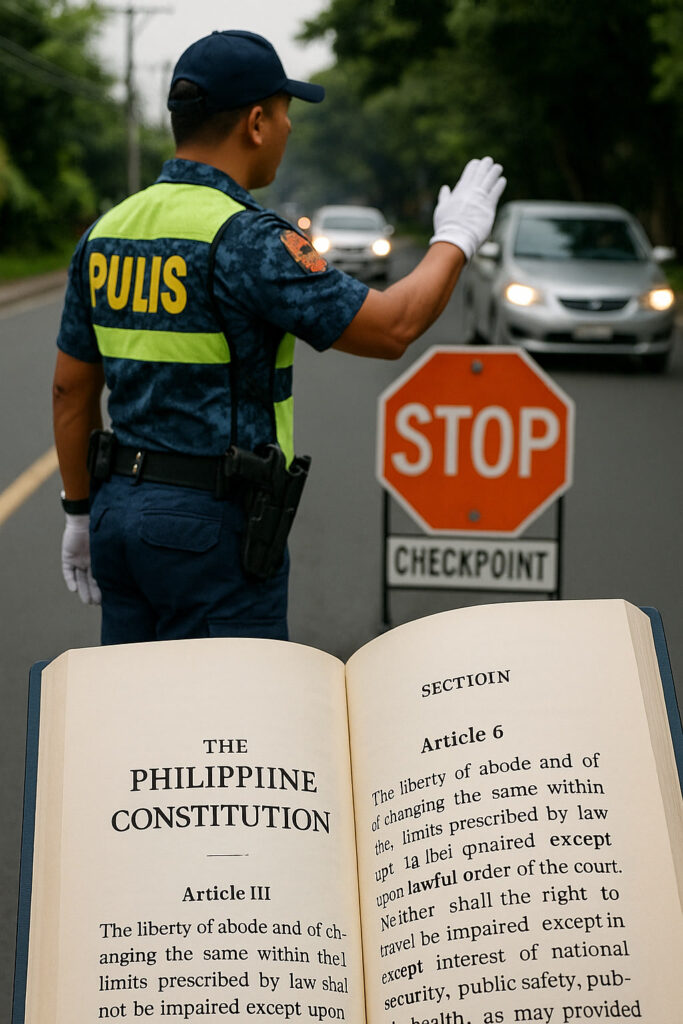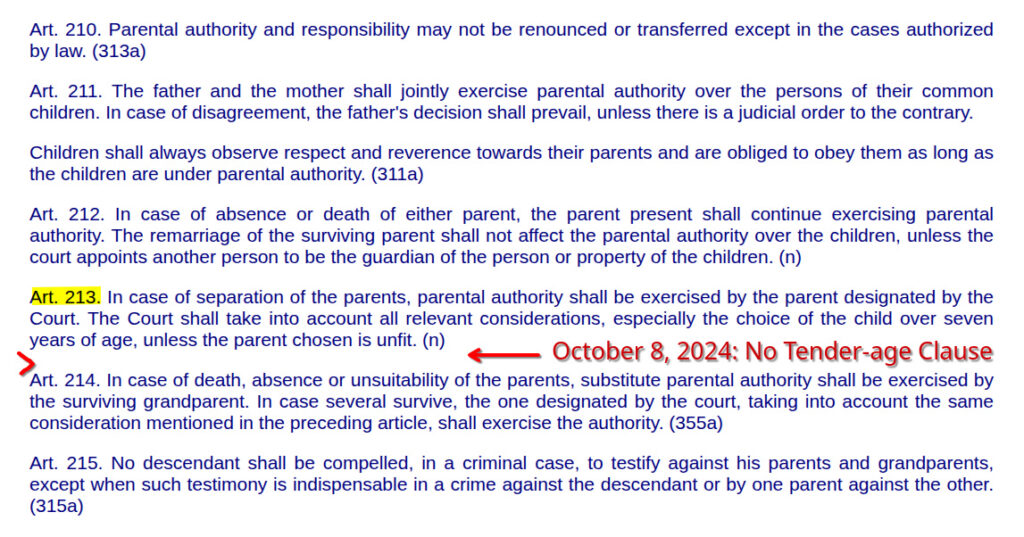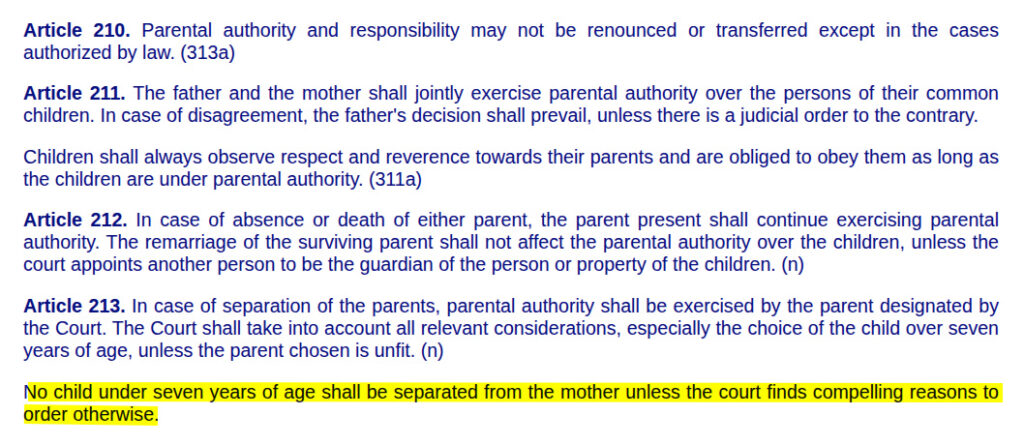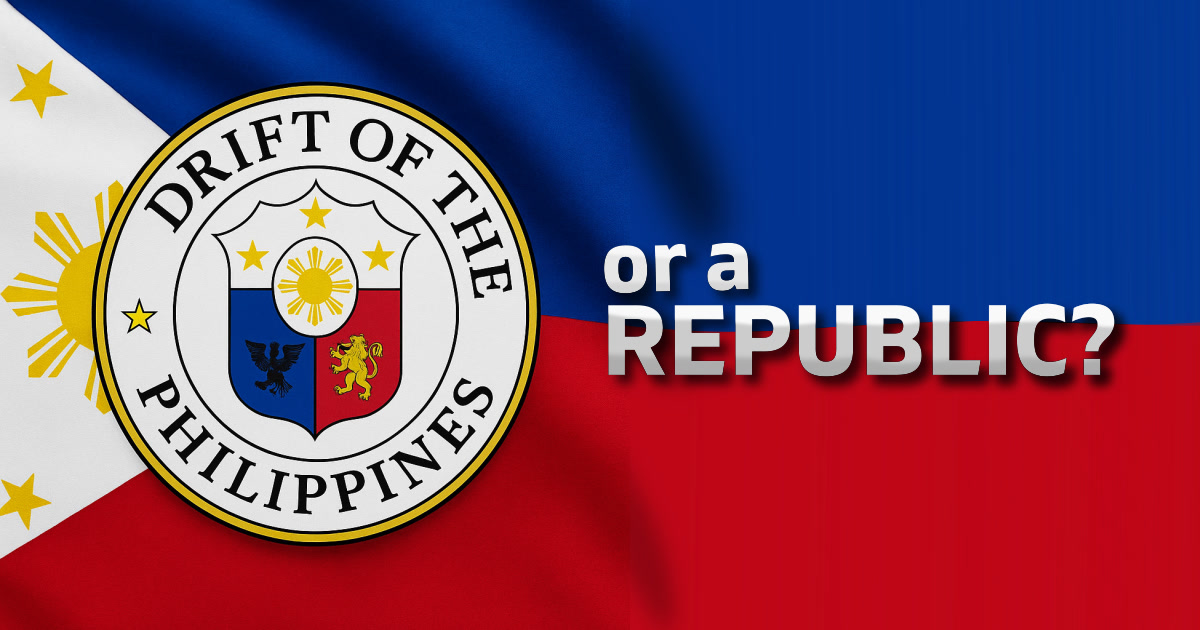The Philippines calls itself a Republic. The flags, seals, and every government document bear the name.
But what is a Republic if the Constitution is ignored at checkpoints, if the Family Code is altered in law books, and if rights are decided by practice instead of text?
If law can be drifted, erased, or rewritten decades later without amendment, then we must ask:
Are we living in a Republic of law — or only the illusion of one?
1. The Right to Travel (Drift #1)
What the Constitution says (Art. III, Sec. 6):
“The liberty of abode and of changing the same within the limits prescribed by law shall not be impaired except upon lawful order of the court. Neither shall the right to travel be impaired except in the interest of national security, public safety, or public health, as may be provided by law.”

What happens in practice:
- Checkpoints.
- Licenses and renewals.
- Tickets and fines for “violations” even when no one is harmed.
👉 The written law says travel is a right. Practice treats it as a privilege.
2. The Right to Custody (Drift #2)
What the Family Code (EO 209 s. 1987) says (Art. 211):
“The father and the mother shall jointly exercise parental authority over the persons of their common children. In case of disagreement, the father’s decision shall prevail, unless a court orders otherwise.”
What happens in practice:
- Police and social workers invoke a belief that “children under seven must be with the mother.”
- But that presumption was never written into Article 211 or Article 213.
3. The Tender Age Problem: From Law to Custom to Fabrication
Here is where the danger goes deeper:
- There were older provisions:
- A 1949 law said children under seven should not be separated from the mother.
- A Presidential Decree (possibly setting it at five) carried something similar.
- But when President Corazon Aquino signed the Family Code in 1987, those earlier provisions were not carried forward.
👉 Since 1987, the Family Code has never included a tender-age clause.
So why do police, social workers, and lawyers still quote it?
Because:
- Outdated customs were carried forward in practice even after the text was erased.
- Public Attorney’s Office manuals and law books — published in the early 2000s — actually inserted the tender-age presumption into Article 213, even though it wasn’t in the original law.
- And shockingly, as recent as late 2024, LawPhil.net itself edited Article 213 to include the tender-age clause — decades after the Family Code became law in 1987.
- Wayback Machine archives prove that before October 2024, Article 213 did not include the tender-age line.
- Between October 2024 and February 2025, it was suddenly added, without any congressional act, without due process, without an official amendment.


If the clause was truly law since 1987, it would have been there from the start. Its quiet insertion nearly 40 years later is not just drift — it is tampering.
4. The Deeper Danger
When practice replaces law:
- A lawful traveler is stopped as if rights are privileges.
- A lawful father is denied authority over his child based on customs that no longer exist in law.
- New lawyers are trained on altered materials, so they pass forward fiction as fact.
- Even the digital archives of law are rewritten decades later, as if history itself can be changed by quiet edits.
👉 If law can be erased, rewritten, or ignored without amendment, then law is no longer law — it is whatever officials and publishers say it is.
5. Republic vs. Democracy
Every flag, seal, and emblem says: “Republic of the Philippines.”
But what is a Republic?
- A Republic means the law is fixed. Rights are unalienable.
- A Republic means law cannot change by trend, opinion, or secret edits. Only by lawful amendment.
- A Republic means rights cannot be purchased, suspended, or fabricated.
A Democracy drifts. A Republic stands.
So ask: if a lawyer’s book can contain laws that don’t exist, and if LawPhil can insert clauses decades later without Congress — is the Philippines functioning as a Republic? Or is it a drifting Democracy where belief and practice overwrite law?
6. The Honest Choice
If the Constitution can be ignored for travel…
If the Family Code can be ignored for custody…
If law books and legal websites can rewrite statutes decades later…
Then the Philippines must admit: it is not a Republic. Cross the word off the flag and be honest.
But if the Philippines is to be what it claims, then the only path is:
- Enforce the Constitution as written.
- Enforce the Family Code as written.
- Correct and expose every fraudulent insertion.
- Uphold rights that cannot be purchased, traded, or denied.
The Call
Justice4Adri is not just about one child. It is a mirror to the nation.
If the Republic’s law is ignored in travel…
If the Republic’s law is ignored in custody…
If even the Republic’s texts can be tampered decades later…
Then what remains of the Republic at all?
A Republic in name only is not a Republic.
But if law and practice are brought back together, then “The Republic of the Philippines” can mean what it says: law, order, justice, and rights for all.

